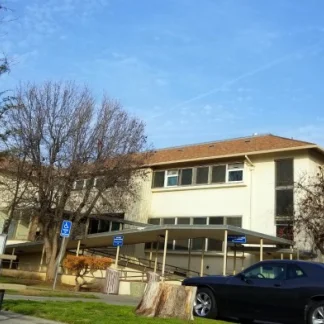Antioch Substance Abuse Programs
Antioch Substance Abuse Programs is an office-based addiction and mental health ...
Treatment at Fresno County Behavioral Health – Adult begins with a mental health assessment to screen for symptoms of addiction or co-occurring mental health disorders. Programs use evidence-based practices to treat substance abuse and co-occurring mental health conditions for adults ages 18 and up. Services include an intensive outpatient program (IOP), medication-assisted treatment (MAT), and detox.
Adults participating in the IOP attend individual and group treatment sessions for improved coping skills, peer support, and recovery support. Sessions are held 3-4 days per week.
MAT is appropriate for various substance use disorders. MAT at Fresno County Behavioral Health is for opioid use disorder and includes counseling and medication management in an outpatient setting.
Detox services include withdrawal management support to help individuals safely and comfortably detox from drugs and alcohol. Following detox, participants are referred to a residential or outpatient addiction treatment program.
Medicaid, private insurances, funding and sliding-scale options are available. You’ll want to check with your insurance provider to verify specific coverage details, including your out-of-network benefits.
Contact us for more information: (559) 600-9180

Connect with Fresno County Behavioral Health - Adult by calling their admissions team directly.
(559) 600-9180 Website Get DirectionsCognitive Behavioral Therapy (CBT) is a therapy modality that focuses on the relationship between one's thoughts, feelings, and behaviors. It is used to establish and allow for healthy responses to thoughts and feelings (instead of unhealthy responses, like using drugs or alcohol). CBT has been proven effective for recovering addicts of all kinds, and is used to strengthen a patient's own self-awareness and ability to self-regulate. CBT allows individuals to monitor their own emotional state, become more adept at communicating with others, and manage stress without needing to engage in substance abuse.
Dialectical Behavior Therapy (DBT) is a modified form of Cognitive Behavioral Therapy (CBT), a treatment designed to help people understand and ultimately affect the relationship between their thoughts, feelings, and behaviors. DBT is often used for individuals who struggle with self-harm behaviors, such as self-mutilation (cutting) and suicidal thoughts, urges, or attempts. It has been proven clinically effective for those who struggle with out-of-control emotions and mental health illnesses like Borderline Personality Disorder.
Group therapy is any therapeutic work that happens in a group (not one-on-one). There are a number of different group therapy modalities, including support groups, experiential therapy, psycho-education, and more. Group therapy involves treatment as well as processing interaction between group members.
In individual therapy, a patient meets one-on-one with a trained psychologist or counselor. Therapy is a pivotal part of effective substance abuse treatment, as it often covers root causes of addiction, including challenges faced by the patient in their social, family, and work/school life.
Dialectical Behavior Therapy (DBT) is a modified form of Cognitive Behavioral Therapy (CBT), a treatment designed to help people understand and ultimately affect the relationship between their thoughts, feelings, and behaviors. DBT is often used for individuals who struggle with self-harm behaviors, such as self-mutilation (cutting) and suicidal thoughts, urges, or attempts. It has been proven clinically effective for those who struggle with out-of-control emotions and mental health illnesses like Borderline Personality Disorder.
Group therapy is any therapeutic work that happens in a group (not one-on-one). There are a number of different group therapy modalities, including support groups, experiential therapy, psycho-education, and more. Group therapy involves treatment as well as processing interaction between group members.
In individual therapy, a patient meets one-on-one with a trained psychologist or counselor. Therapy is a pivotal part of effective substance abuse treatment, as it often covers root causes of addiction, including challenges faced by the patient in their social, family, and work/school life.
Group therapy is any therapeutic work that happens in a group (not one-on-one). There are a number of different group therapy modalities, including support groups, experiential therapy, psycho-education, and more. Group therapy involves treatment as well as processing interaction between group members.
In individual therapy, a patient meets one-on-one with a trained psychologist or counselor. Therapy is a pivotal part of effective substance abuse treatment, as it often covers root causes of addiction, including challenges faced by the patient in their social, family, and work/school life.
In individual therapy, a patient meets one-on-one with a trained psychologist or counselor. Therapy is a pivotal part of effective substance abuse treatment, as it often covers root causes of addiction, including challenges faced by the patient in their social, family, and work/school life.
Antioch Substance Abuse Programs is an office-based addiction and mental health ...
Central California Recovery offers office-based addiction and mental health trea...
King of Kings Community Centers - Men's Recovery Home is a private rehab located...
Adolescent Behavioral Clinic is a private rehab located in Fresno, California. A...